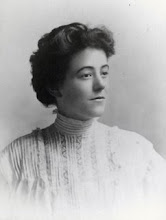
My father acquired this book at an auction about 40 years ago. He was a restaurateur and then ran the dietary department for the local hospital. In the Army he was a medic in a collecting company and doubled as the field chow chief. He knew just about everything about food, not haute cuisine exactly, but I never ate anything he made that wasn’t great.
He loved this book all to pieces. Its shrill admonitions and bald opinions kept us all laughing. Example:
”But in most American families, the largest amount of waste, probably, takes place in the use of fuel. Heretofore, fuel of all kinds has been comparatively cheap, and very little supervision has been exercised over its use. At present rates however, it is an item of considerable importance, and it is quite time that servants were taught how to employ it to the best advantage.
…
The general principle of construction upon which American kitchen stoves and ranges is based, renders them either very economical, or very much otherwise, according to the way they are managed. After the fire is first built in an ordinary stove, or range, the dampers ought all to be closed up and not opened again during the day, except while broiling, or something of that sort. If the grate is kept clear, and the fire replenished with a small quantity of coal, before it begins to get low, both the oven and the top of the range will be kept sufficiently hot for any kind of cooking, and it will be done all the better for being done somewhat more slowly, than is customary with the well meaning, but terribly blundering and irresponsible race of wild Irish girls, who officiate as the high priestesses of our domestic altars.”
My father’s mother was Katie O’Connell, 100% Irish and not the least bit wild. I can still hear him laughing at the Victorian presumption of superiority of the Mrs. J. C. Crolys of the world. Anglo racism is nothing new. That’s why Catholic universities were/are considered inferior and the story of the Irish monks in the Dark Ages, keeping learning alive, was suppressed for so long. I keep hoping to find a tie to Daniel O’Connell, the Liberator, as my grandmother’s father departed County Kerry, near Castle Island, and the Liberator was a Kerry man.
Here’s another suggestion from the quill of Jennie June:
“Good brooms and brushes will last a long time if care is taken of them. When first bought they should be allowed to stand in cold water for twelve hours, and then thoroughly dried before use. When not in use they should be hung up on a loop of twine or cord so that the weight may not rest on the edge of the splinters and break them. Four large brooms should be provided, one for the kitchen, one for the parlor, one for the sleeping rooms, and one for the family, or “living” room. A whisk will be required for every room in the house, besides one for the hall.
As soon as the kitchen broom is worn down so as to render it unfit to sweep the floor with ease and comfort, take it for the cellar, door steps and back yard; take the one from the sitting room for the kitchen, the one from the parlor to the sitting room, and get a new one for the parlor.”
Whew.
“Susan B. Anthony’s Apple Tapioca Pudding
Susan B. Anthony is an excellent cook and housekeeper, and it was a proverb at home that when Susan did the housekeeping, the meals were always punctual and well served. She believes in a plain simple diet and the following is her favorite pudding:
Peel and core eight apples, fill them with sugar in which a little nutmeg has been grated. Take a cupful of tapioca, which has been all night soaking in water, Add to it a little milk or water if needed, and pour it around the apples, which have been laid in a buttered dish. Bake slowly one hour, and serve with cream and powdered sugar. It is good hot or cold, the tapioca forming a jelly around the apples”
Jennie June’s Cookbook was published in 1878.

1 comment:
The housekeeping books of yore are some very interesting reading. How did they bake bread, for example, without a thermometer or timer? I loved American history, pioneer history, when I was young. Remember the box car children? Not that this is related - but I loved the idea of being able to survive without a lot of props. Jennie June wasn't writing for the pioneers, of course.
Post a Comment